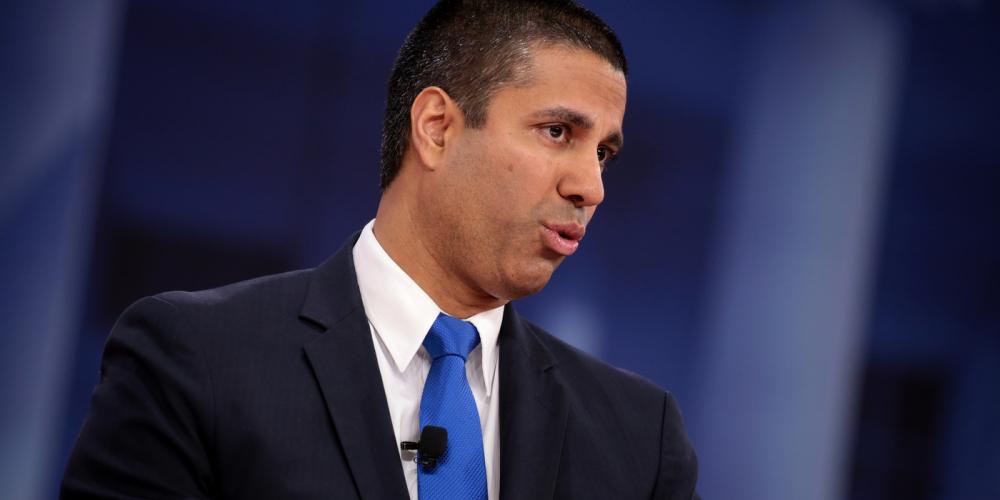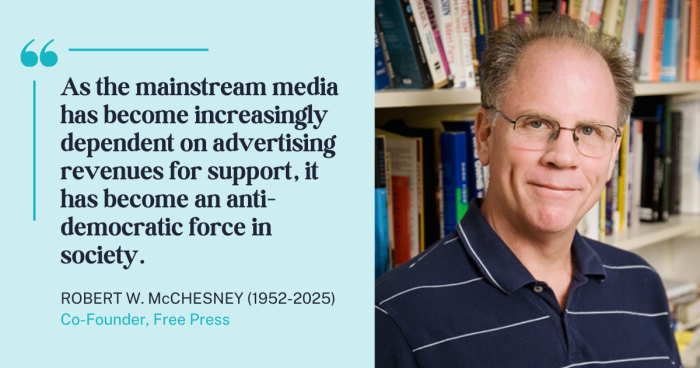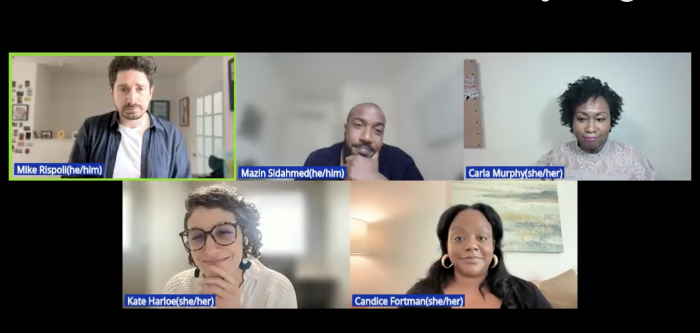Fake Comments, FCC Obstruction and the 'Dirty Trickster'

It’s been more than a year and a half since we first saw and heard reports of a concerted effort to use faked comments to undermine the FCC’s 2017 Net Neutrality proceeding.
From the start FCC Chairman Ajit Pai has been reluctant to help reporters, technologists and investigators seeking to get to the bottom of the scandal, and to figure out exactly who is behind the millions of fraudulent comments that found their way into the agency docket.
Thanks to Gizmodo, we now know that Pai’s reluctance may be due to the revelation that the likely culprits behind this fraud were stuffing the docket with comments favorable to his plans to repeal Net Neutrality protections.
While official investigations into the matter are ongoing, a pattern of abuse is emerging.
Here’s the timeline:
April 2017
Chairman Pai announces his plans to begin a rulemaking process to determine whether to repeal the FCC’s 2015 decision that put in place strong Net Neutrality protections. As he launches the proceeding, Pai announces a series of proposals to roll back the safeguards, inviting the public to “have a chance to share its views on them,” and adding, “in the time to come, the FCC will follow the facts and the law where they take us.”
May 2017
A month later, reports by The Verge and data analysts find that the submission of enormous numbers of faked comments is corrupting the process. Several people come forward to alert the FCC that their names and addresses had been used to file Net Neutrality comments without their knowledge or permission. A Fight for the Future investigation finds several comments used the names of dead people. Subsequent analysis finds that it’s likely millions of comments in the proceeding were faked.
June 2017
House Energy and Commerce Committee Ranking Member Frank Pallone urges the Justice Department and FBI to investigate whether the many faked comments submitted to the FCC violated federal law. “I am deeply concerned that the sheer number of these potentially false comments suggest a coordinated attempt to materially mislead the FCC,” the Democrat writes.
Also in June, the New York State attorney general contacts the FCC to request comment logs to “investigate which bad actor or actors were behind the misconduct.” Over the next six months, the AG’s office would ask the FCC to turn over logs and other records at least nine times; it received no response from the federal agency.
September 2017
Data researcher and writer Jason Prechtel sues the FCC for refusing to respond to a Freedom of Information Act request seeking comprehensive data logs related to any faked comments. “How are we supposed to trust in the integrity of the FCC’s decision-making process,” he asks, “when they won’t divulge records showing how millions of comments that are already public were submitted to begin with, and by who?”
November 2017
The New York State attorney general’s office publishes a letter to Chairman Pai stating that someone has on a massive scale “misused the real names and addresses of actual people as part of the effort to undermine the integrity of the comment process.” The AG’s office urges Pai’s FCC to reconsider its refusal to assist law enforcement in investigating the identities of those who illegally sought to corrupt the agency’s comment process.
December 2017
Eleven House Democrats call on the Government Accountability Office to investigate pervasive misuse of identities in the FCC rulemaking process, examine the information the agency is withholding from other investigators, including the New York attorney general, and determine what sorts of safeguards the FCC has in place to prevent this level of fraud.
At the other end of the Capitol Building, 28 senators and Democratic FCC Commissioner Jessica Rosenworcel urge the FCC to delay its Net Neutrality vote to give investigators more time to look into the comment fraud. Pai ignores their call, and on Dec. 14 the FCC votes along party lines to repeal the Title II classification of broadband providers, abdicating its authority to prevent ISPs from blocking and throttling internet users’ online connections.
January 2018
House Democrats call on the Justice Department and the FBI to investigate instances of comment fraud occurring at other federal agencies. “It now appears that the fake comments submitted to the FCC … were not an isolated incident,” they write. “At least five agencies have been the target of falsely generated rulemaking comments.”
They cite evidence of similar fraud in public dockets at the Consumer Financial Protection Bureau, the Department of Labor, the Federal Energy Regulatory Commission and the Securities and Exchange Commission.
March 2018
Joined by a number of allies, Free Press files suit in the U.S. Court of Appeals to restore the FCC’s Net Neutrality protections. In its filing, Free Press cites numerous flaws in the agency’s decision-making procedure, including irregularities in its comment docket where there are a large number of “fraudulent submissions that the FCC refused to investigate.”
October 2018
After removing all duplicate and fake comments filed in the FCC proceeding, Stanford researcher Ryan Singel finds that 99.7 percent of unique public comments favored keeping the Net Neutrality protections that Pai’s FCC repealed.
“The FCC did nothing to try to prevent comment stuffing and comment fraud, and even after the vote, made no attempt to help the public, journalists, [and] policy makers actually understand what Americans actually told the FCC about the repeal of the 2015 Open Internet Order,” Singel writes.
On Oct. 16, the New York attorney general subpoenas 14 organizations, including anti-Net Neutrality telecommunications-trade groups and D.C.-based conservative groups, to determine who was behind the submission of more than nine million fraudulent public comments in the FCC docket.
Pro-Net Neutrality groups Demand Progress, Fight for the Future and Free Press are among the groups subpoenaed. “The noise from the fake or orchestrated comments appears to have broadly favored the telecommunications industry,” notes a New York Times’ report on the subpoenas. Other state attorneys general and the Justice Department join or announce similar investigations.
January 2019
After a lengthy inquiry, Gizmodo reporter Dell Cameron publishes a story tying one of the subpoenaed groups, the misleadingly named Free Our Internet, to hundreds of thousands of faked comments supporting the Pai FCC’s repeal of Net Neutrality protections. Free Our Internet is run by a former Trump campaign staffer who also served on the presidential inaugural committee, which federal prosecutors are investigating for allegedly accepting improper funding from foreign entities.
Former Trump adviser and self-described “dirty trickster” Roger Stone also appears to have ties to Free Our Internet, having written an Op-Ed that steered people to the organization’s anti-Net Neutrality action. The Gizmodo investigation also identifies links between Free Our Internet and other right-wing organizations under subpoena in the attorneys general and DoJ investigations.
May 2021
A New York State Attorney General report implicates the broadband industry, and NCTA front group Broadband for America in particular, in going to great lengths to conceal its involvement with many of the groups implicated in the faked comment stuffing scheme. According to the AG's report, Broadband for America "recruited advocacy groups to 'sponsor' these comment solicitations to give the false impression to the public and policymakers that there were a multitude of different voices clamoring for the repeal of the existing net neutrality rules. Using the names of these non-profit sponsors — instead of the name of BFA or its member companies — also had the effect of obscuring the broadband industry’s role in orchestrating and funding the effort."
State Attorney General Letitia James reaches agreements with three of the "lead generators" behind millions of the fake comments submitted in the FCC's Net Neutrality proceeding: Fluent, Inc., responsible for approximately 4.8 million fraudulent comments; Opt-Intelligence, Inc., responsible for more than 250,000 fraudulent comments; and React2Media, Inc., responsible for approximately 329,000 comments. "The agreements require the companies to adopt comprehensive reforms in future advocacy campaigns and pay more than $4.4 million in penalties and disgorgement, according to the Attorney General's office.
May 2023
Attorney General James secures $615,000 in penalties from three additional companies implicated in stuffing the FCC docket with faked comments: LCX, Lead ID, and Ifficient.





